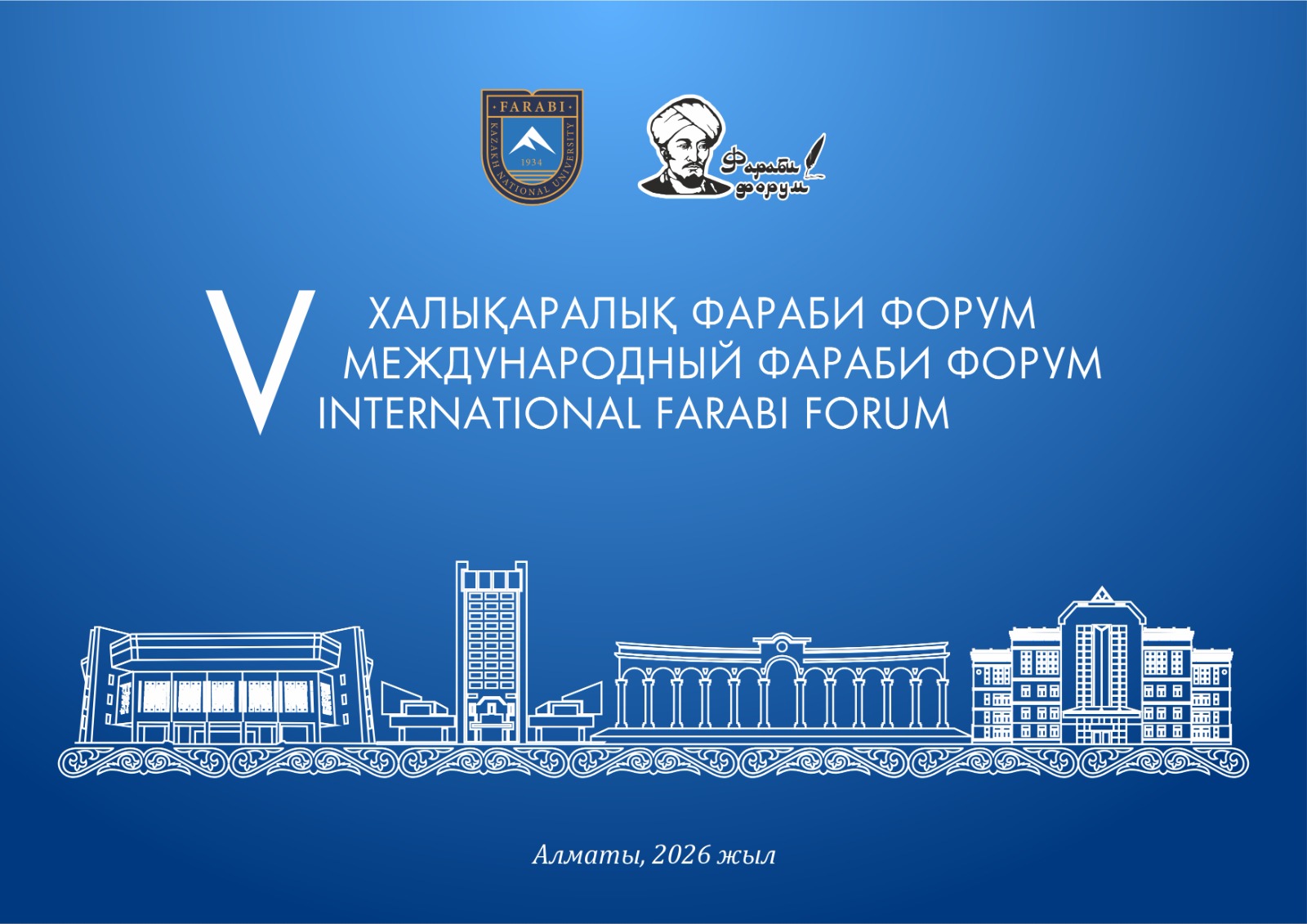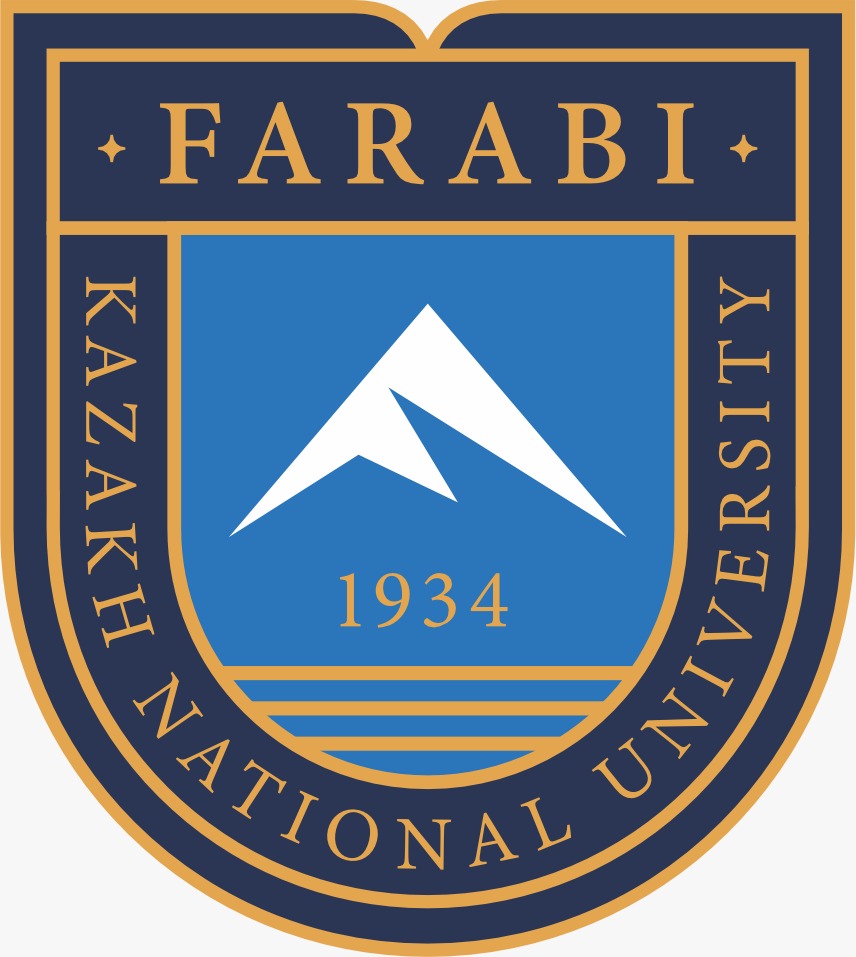In KazNU discussed topical issues of world economy and energy
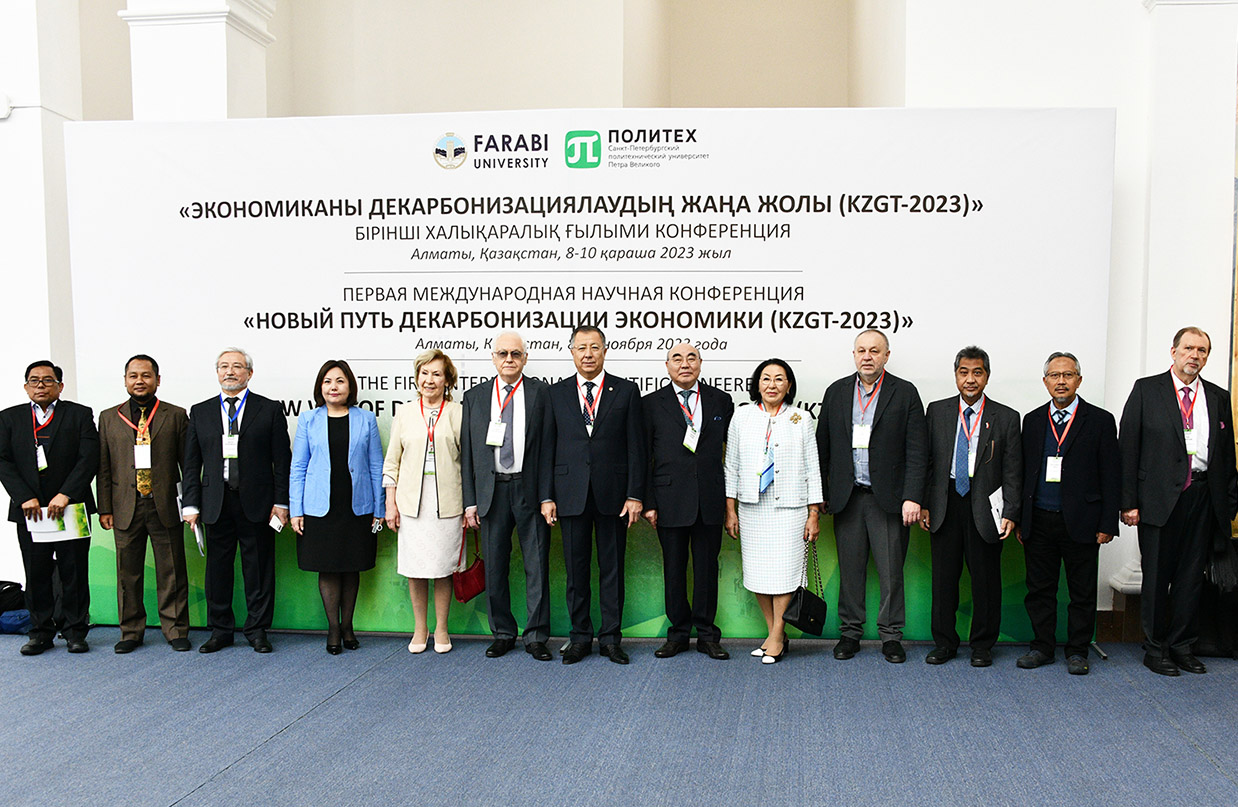
The І International Scientific Conference "New Way of Decarbonization of Economy (KZGT-2023)" started in Al-Farabi Kazakh National University. The event was organized jointly by Al-Farabi Kazakh National University and St. Petersburg Polytechnic University as part of the implementation of SDG 13.
The aim is to discuss topical issues in the field of economics and energy, as well as to find ways to solve problems.
The conference was attended by Academician of the Russian Academy of Sciences, Chief Researcher of the Institute of Mathematical Research of Complex Systems at the Moscow State University named after M.V. Lomonosov. M.V. Askar Akaev, academician of the Russian Academy of Sciences, scientific director of the Institute of Oceanology of the Russian Academy of Sciences Robert Nigmatulin, professor, doctor of economic sciences, academician of the Russian Academy of Sciences Boris Porfiriev, corresponding member of the Russian Academy of Sciences, director of the Institute of Economic Forecasting of the Russian Academy of Sciences Alexander Shirov, director of the Institute of Coal of the Siberian Branch of the Russian Academy of Sciences, professor Vladimir Klishin, director of research of the Higher School of Social Sciences, professor Sapir Jacques, professor of the Atlantic University Institute in Lisbon Tesselano Campos, director of the Institute of Economic Forecasting of the Russian Academy of Sciences, professor D.A. Kunaeva, director of the Institute of Economic Forecasting of the Russian Academy of Sciences. D.A. Kunaeva Institute, Academician of the National Academy of Sciences Nikolay Buktukov, Doctor of Economics Bulat Khusainov, Kazakhstani and foreign scientists, qualified experts in the field of energy, economics, teachers and young people of the university.
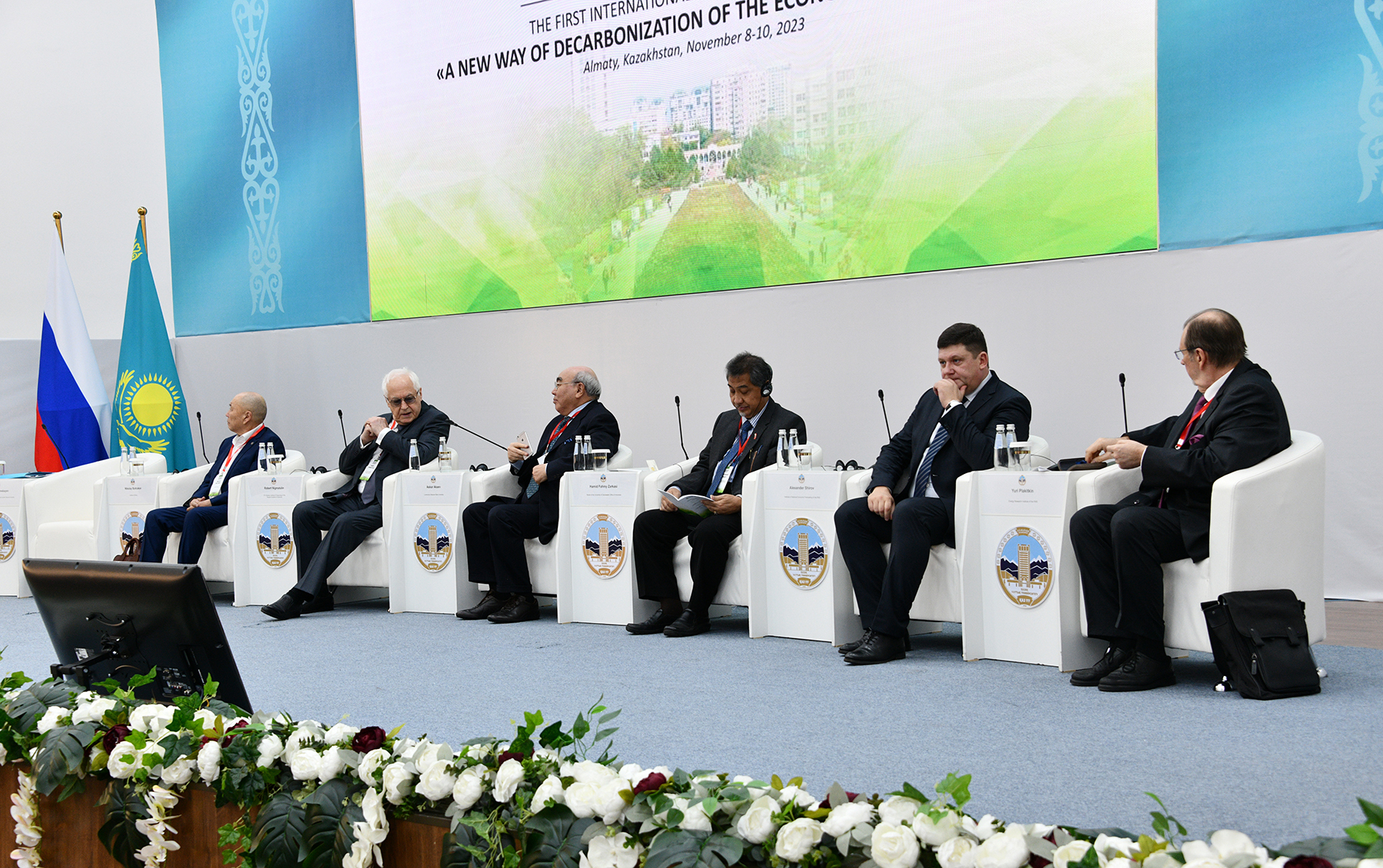
Chairman of the Board - Rector of Al-Farabi Kazakh National University Zhanseit Tuimebaev made a report at the conference and noted the importance of today's even
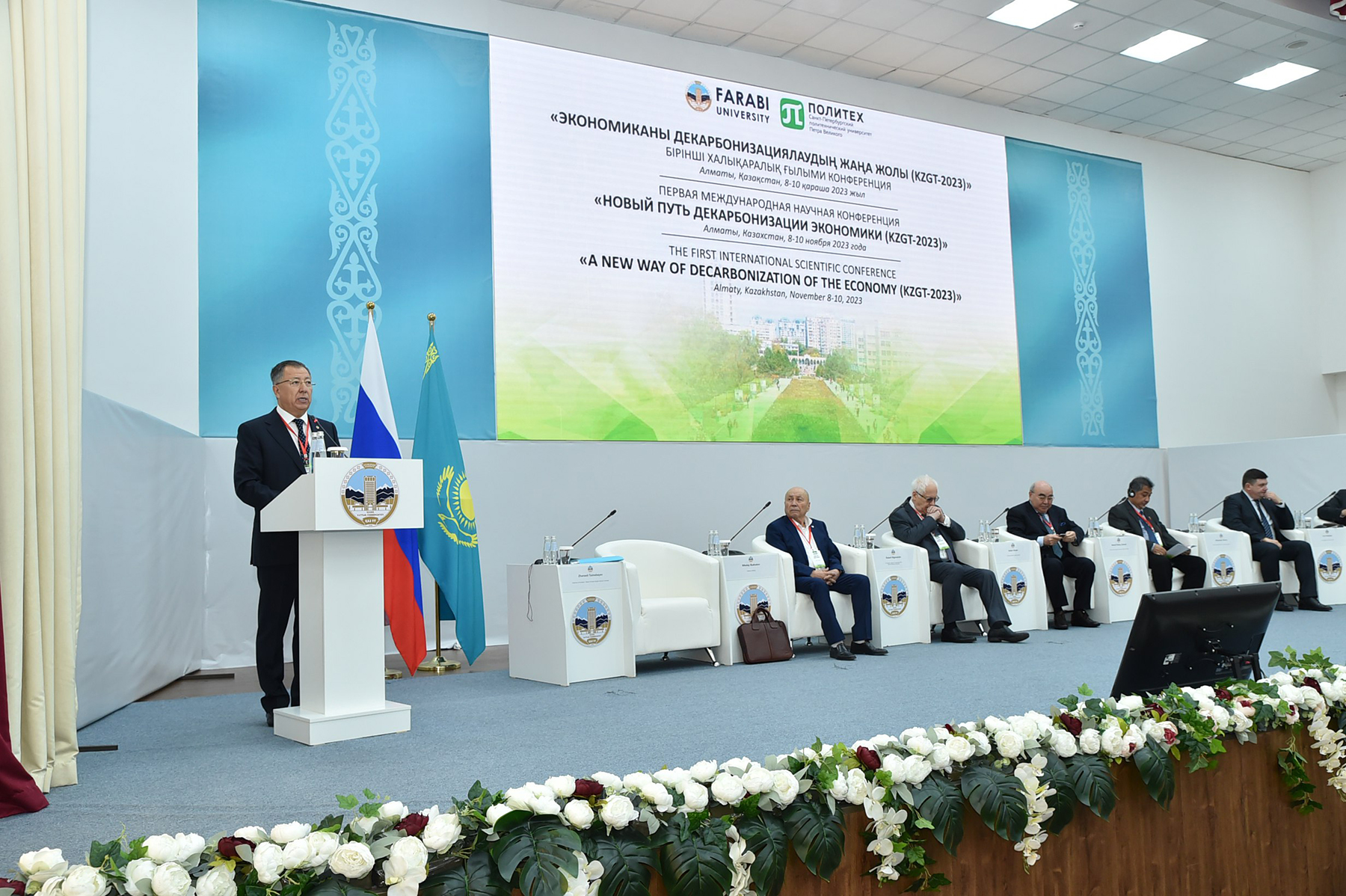
"Economy is the driving force of any state. It develops through the integration of science and production. There is a growing demand for specialists in the field of economy and energy in the world. We must prioritize science, train qualified specialists for each industry and implement new innovative solutions. Today we are gathered here to discuss one of the most important and urgent topics of our time - ways to decarbonize the economy. For many years, humanity has been facing challenges related to climate change. These challenges require not only attention but also concrete action. The goal of reducing greenhouse gas emissions and transitioning to a more sustainable economy has become more critical. Innovation and technology play a key role in this process," said the Rector.
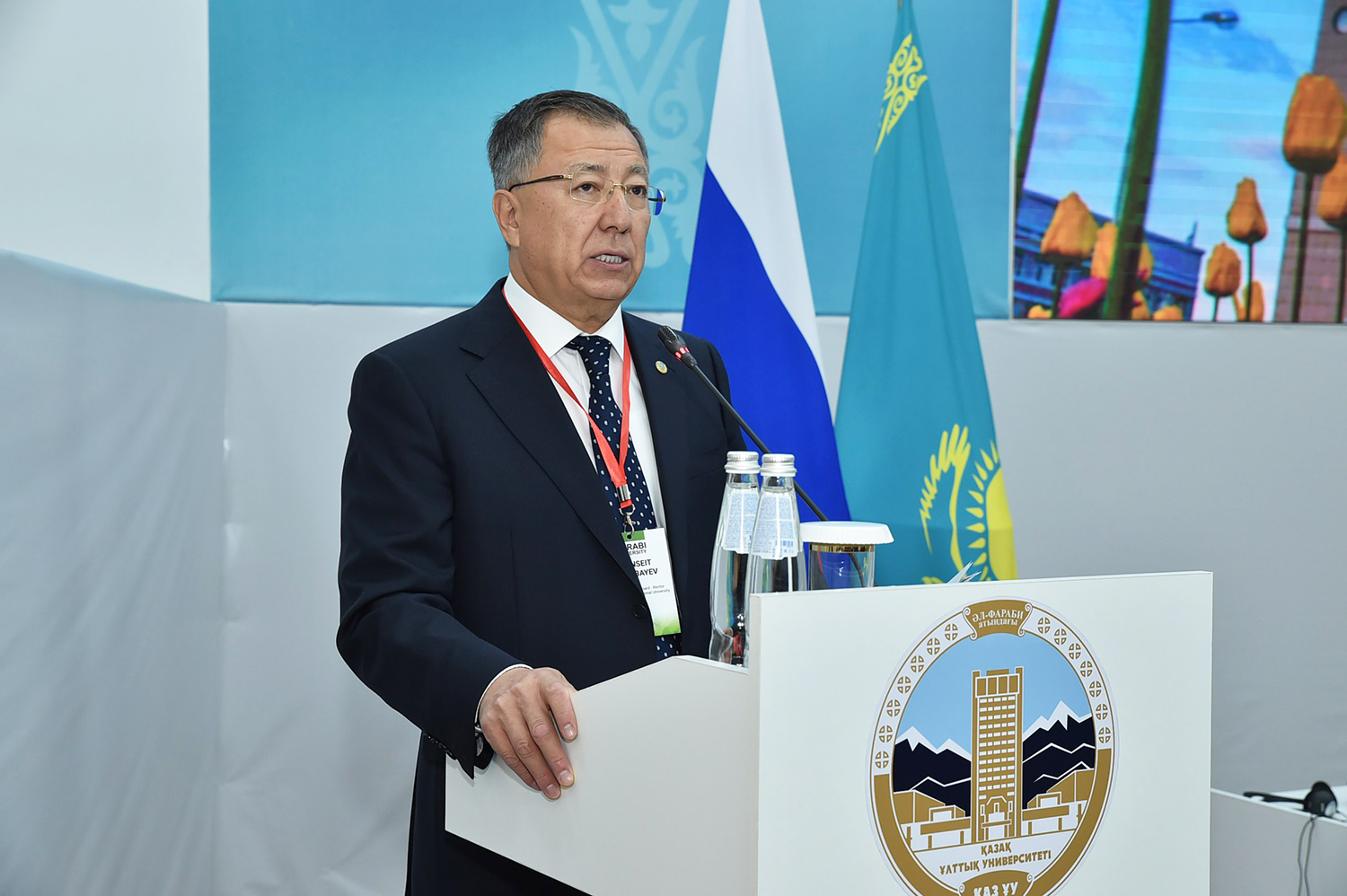
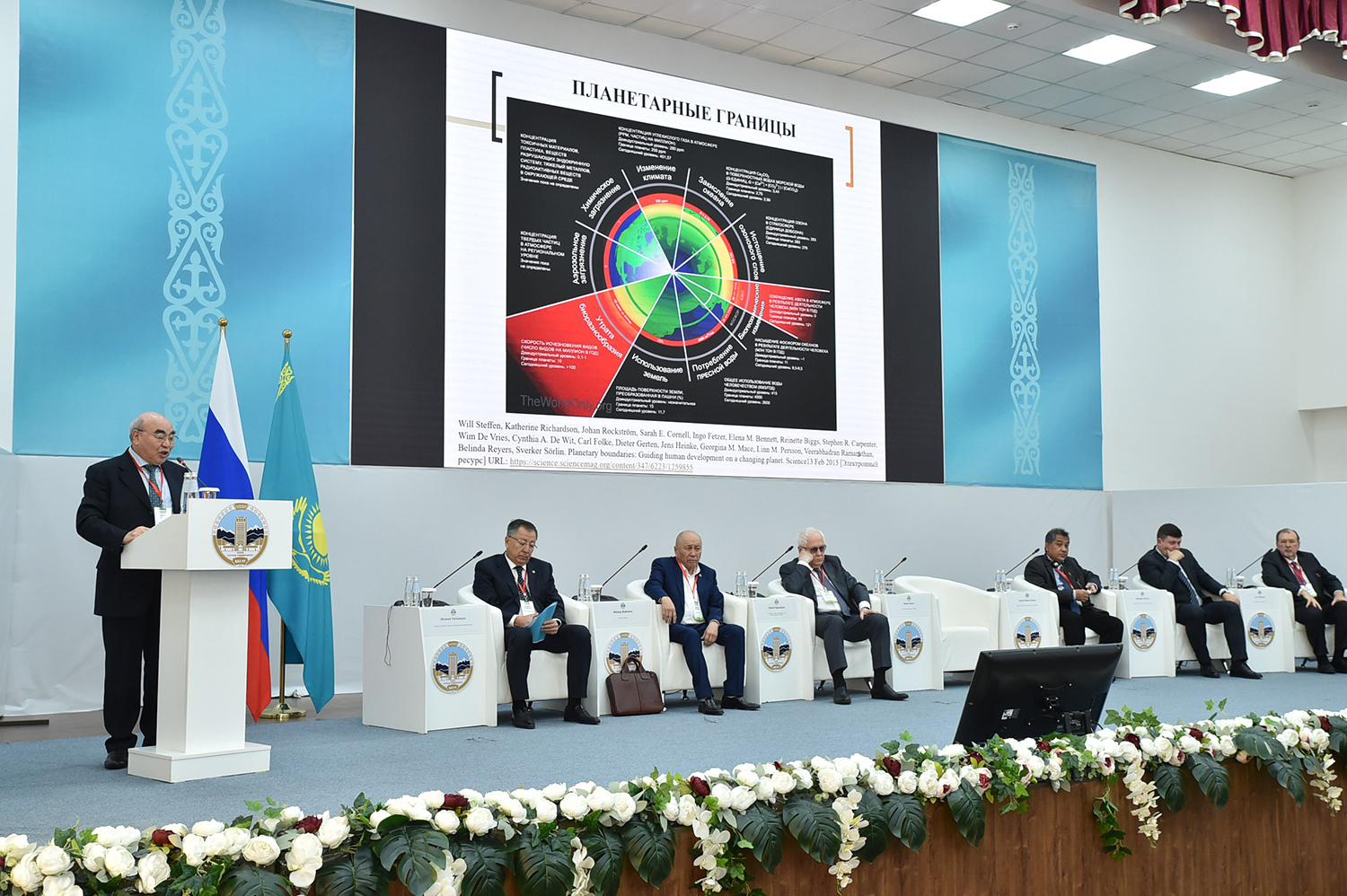
In turn, academician Askar Akayev noted: "Today's event plays an extremely important role. The work of the conference is aimed at supporting three important historical initiatives of the President of Kazakhstan Kassym-Jomart Tokayev. The first is the establishment in Kazakhstan of a regional hub for the UN SDGs for Central Asian countries. The second is to hold a regional climate summit in 2026 in Almaty under the auspices of the UN with the establishment of a project office for the CAR countries. I think here it would be appropriate to take the initiative of Janseitu Kanseitula and hold the summit in KazNU. I believe that this would be a historic event. The third is to launch in Kazakhstan a partnership program on fair energy transition for the CAR countries".
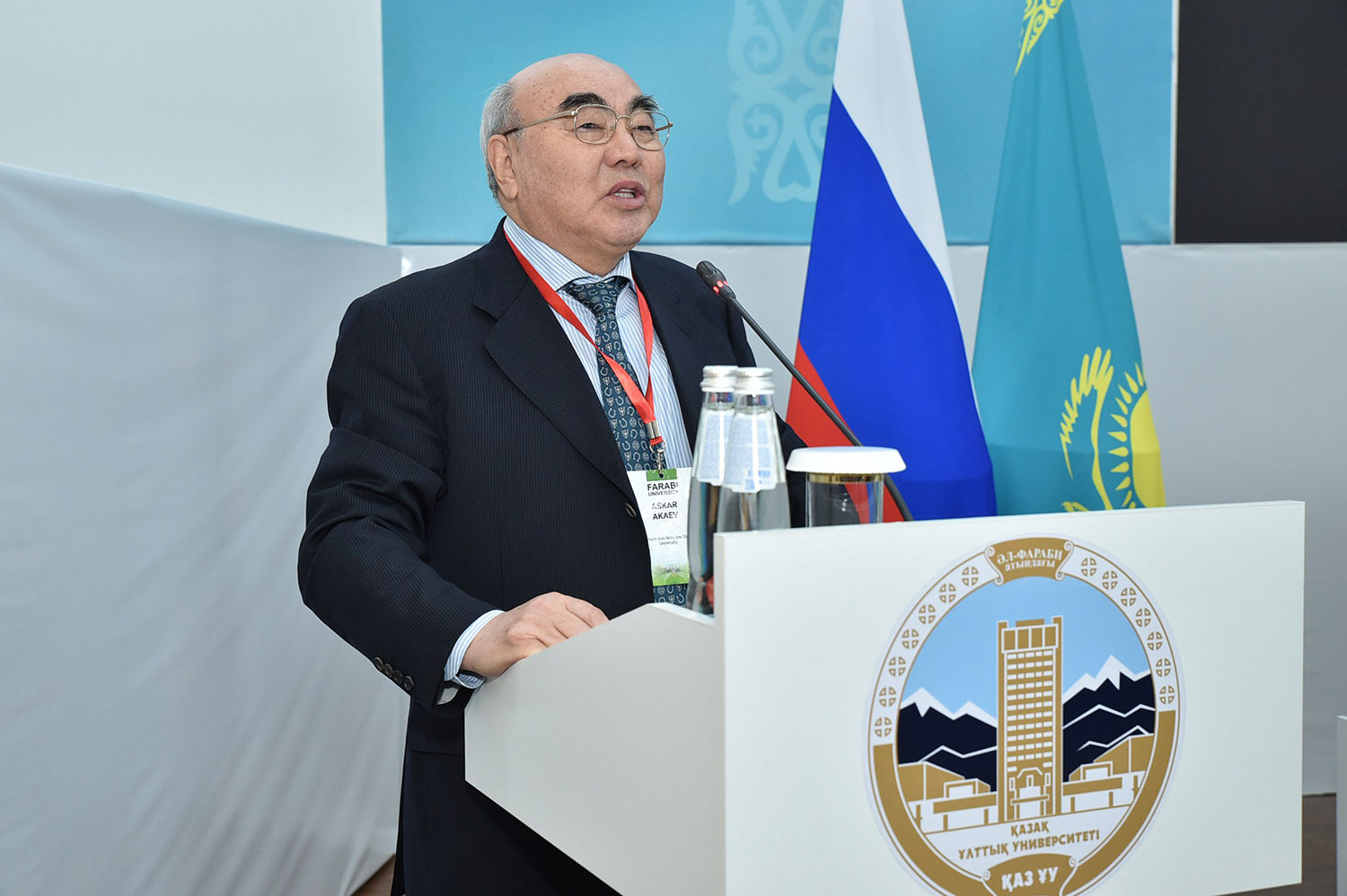
The foreign guests also shared their experience, touched upon topical issues in the sphere of economy and energy, and made their proposals.
The scientific head of the Institute of Oceanography of the Russian Academy of Sciences, Doctor of Physical and Mathematical Sciences, Professor Robert Nigmatulin noted the impact of the oceans on climate change. According to the scientist, less precipitation, rising ocean levels, melting ice have a great impact on weather fluctuations. Therefore, in his speech Robert Nigmatulin drew attention that the above problems should be solved by the whole country.
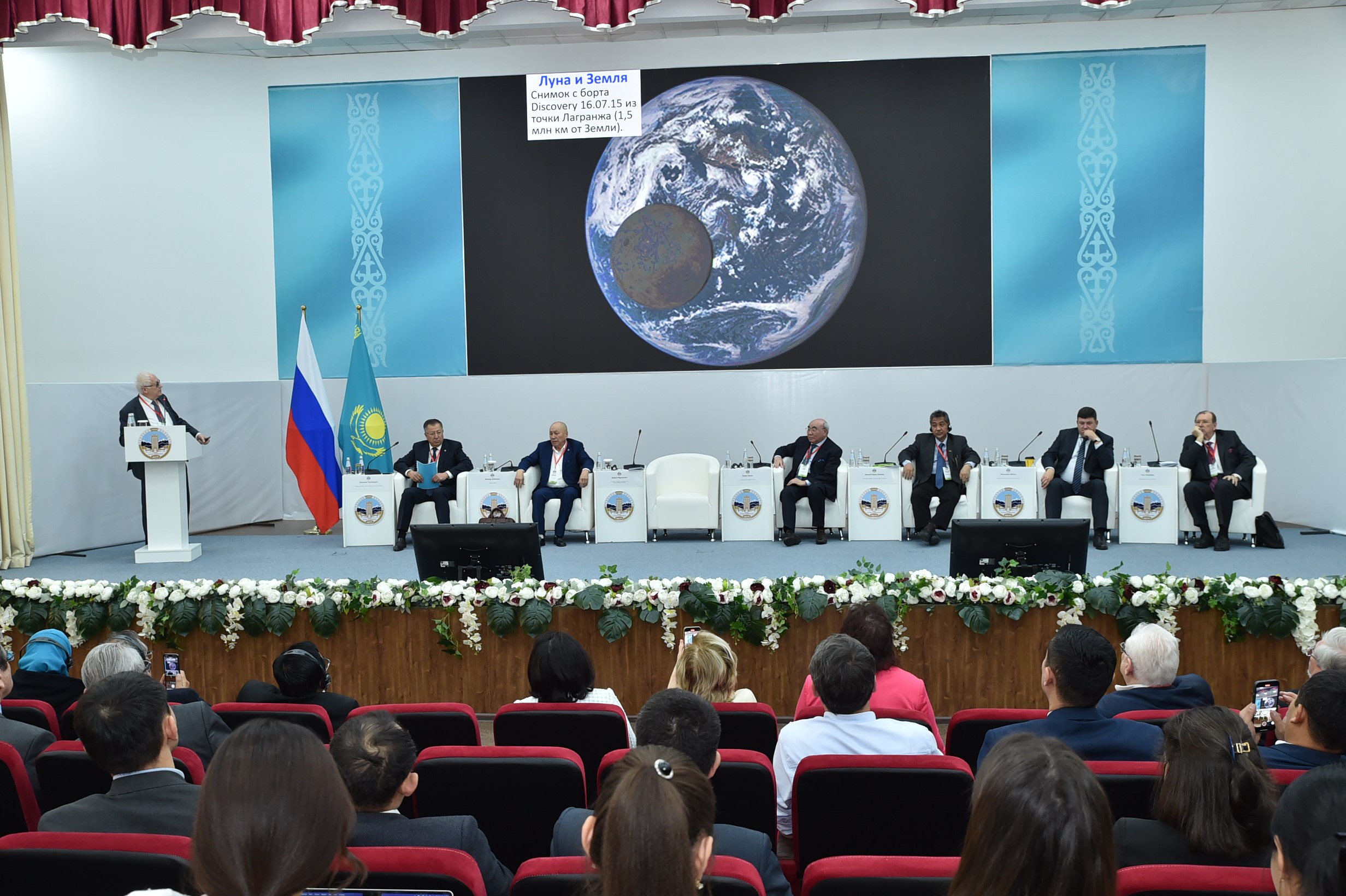
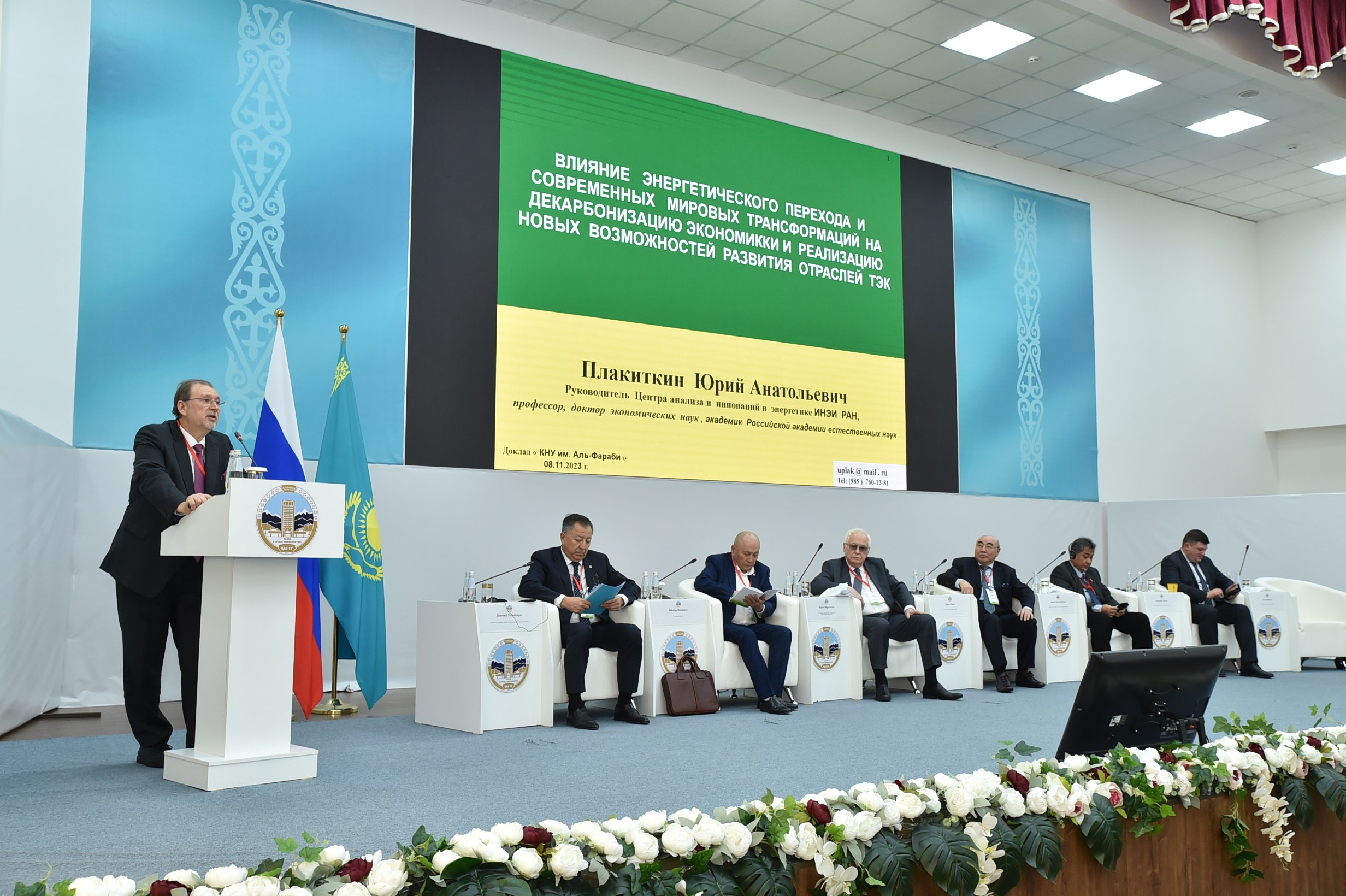
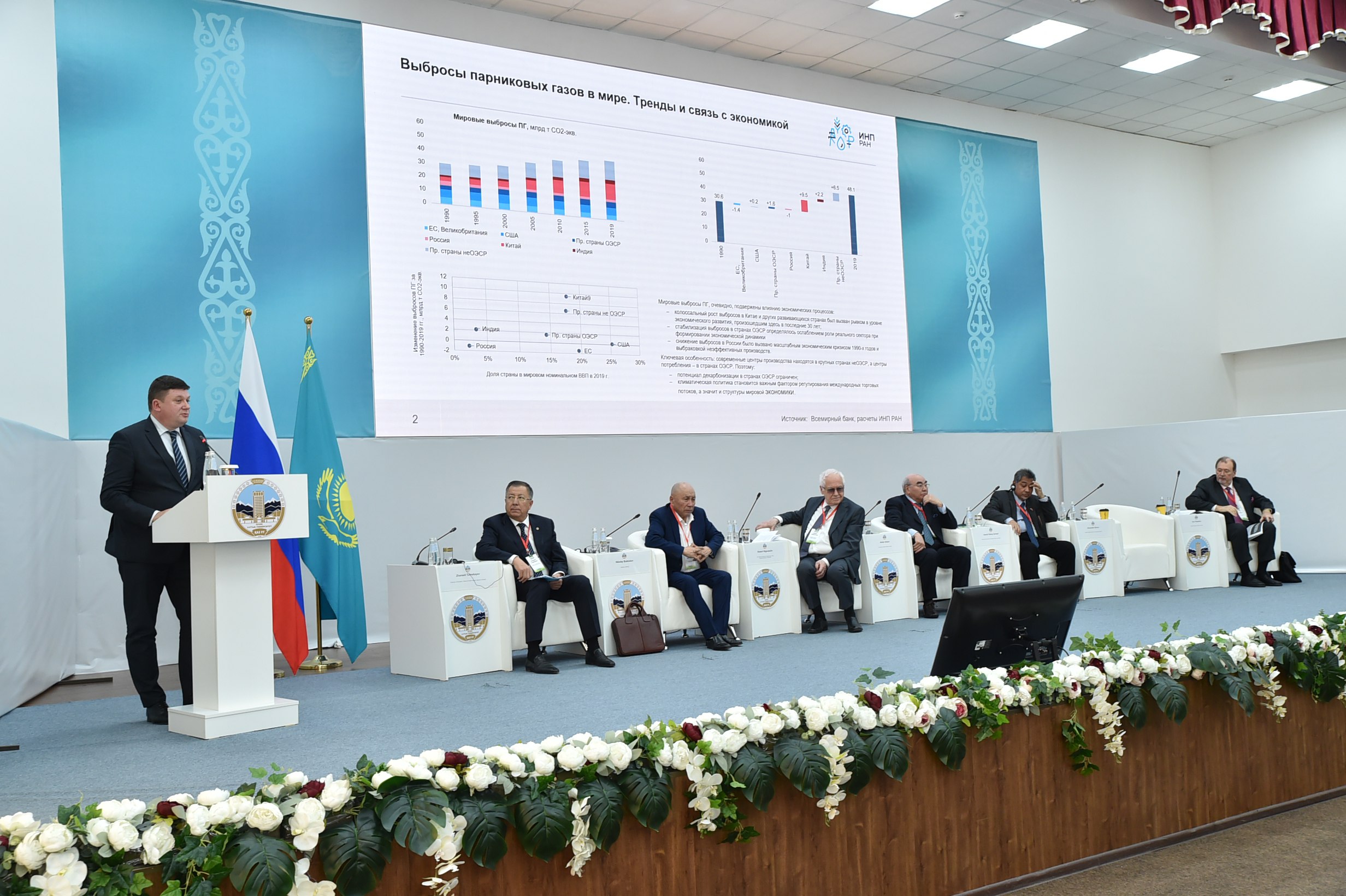
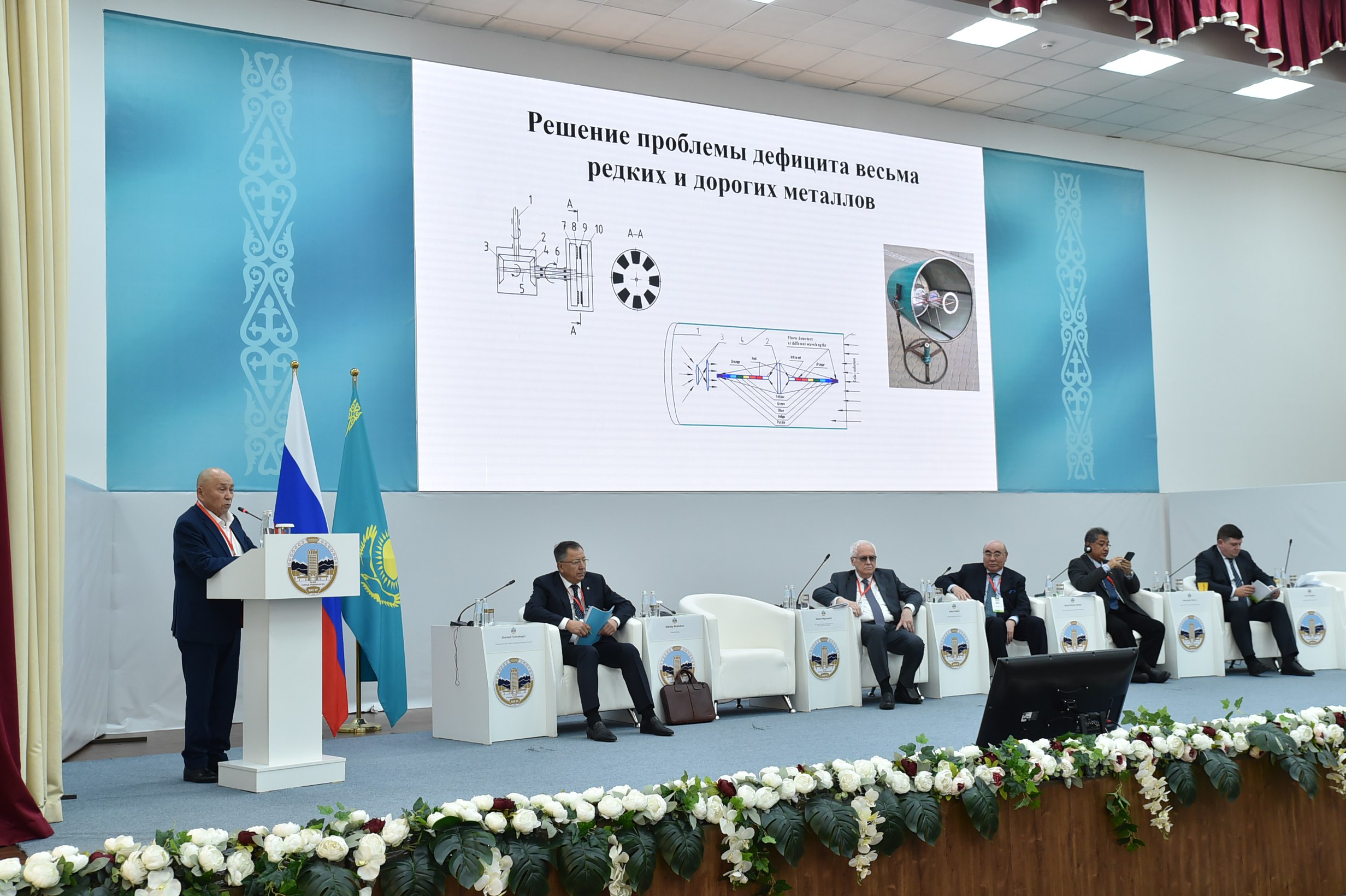
The conference discussed the issues of improving the quality of life, improving human health, energy saving, creating effective institutions, improving technologies, preserving the environment, inclusive growth and energy consumption, energy transition and digital transformation in the energy sector. The topics of waste-free coal technologies, hydrogen and nuclear energy development, transportation mobility and climate change were also touched upon.
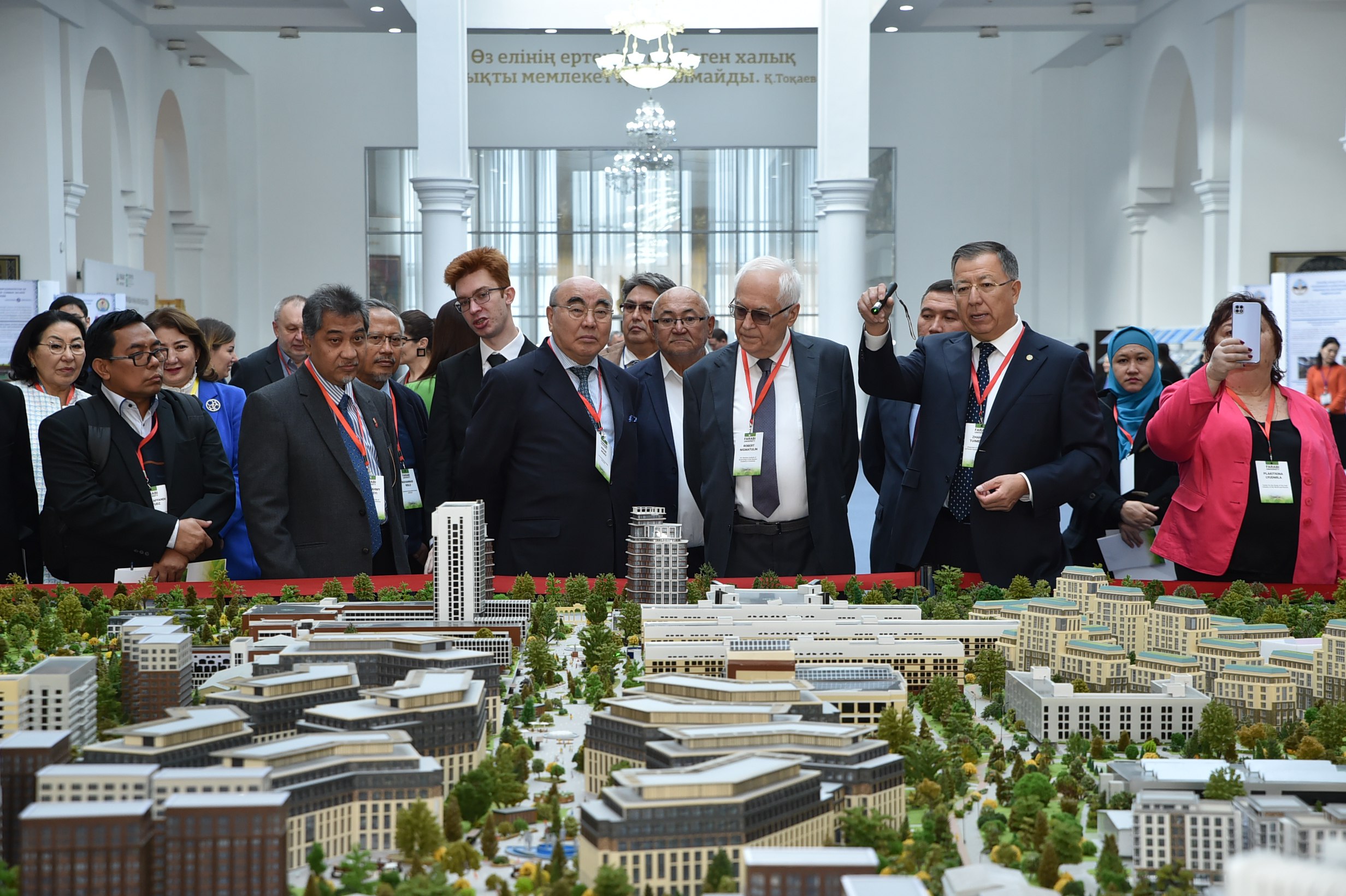
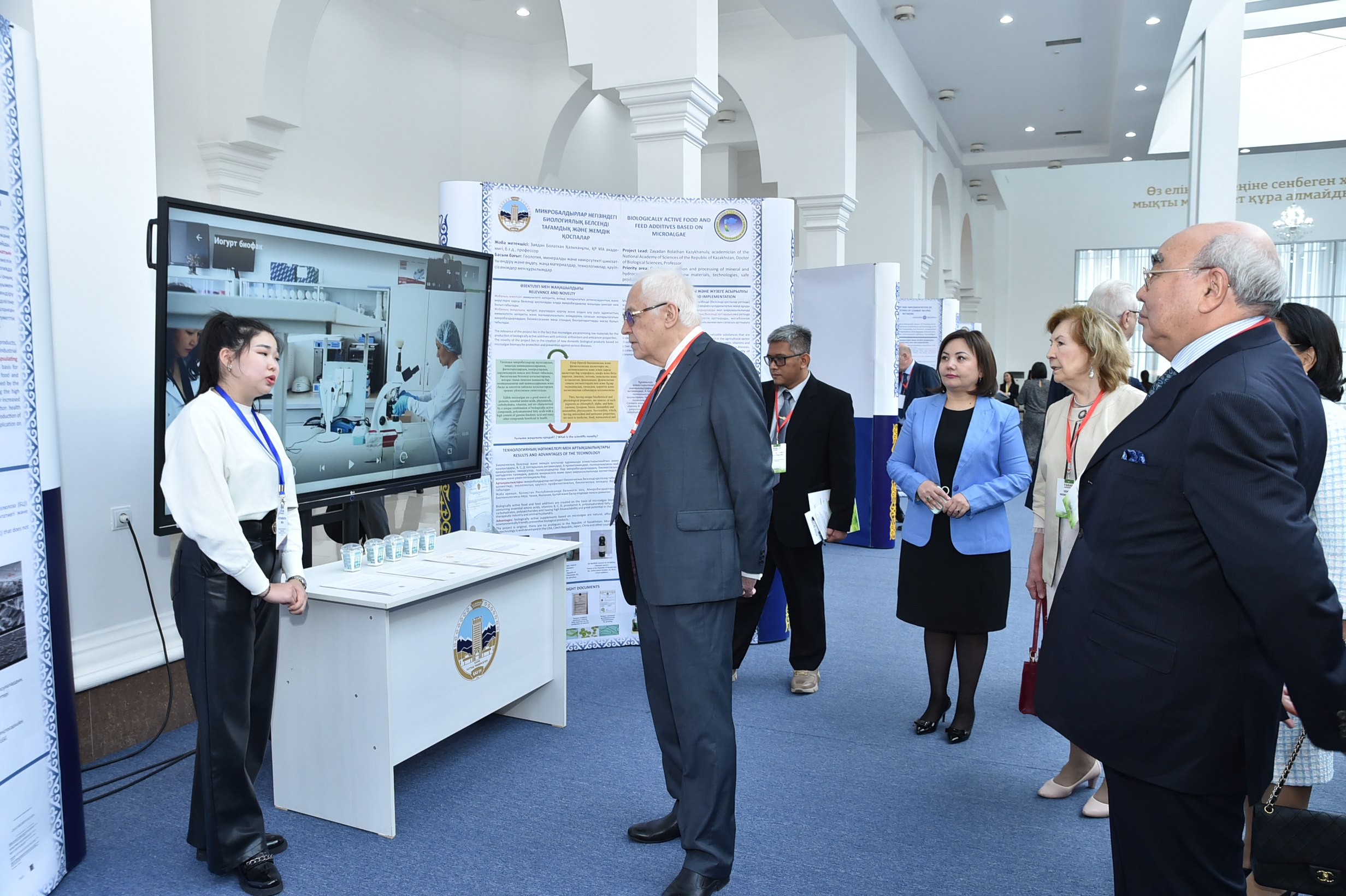
Other news
